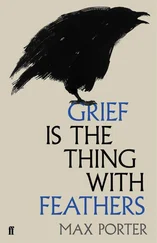“I have work in this city,” said Gob, passing his finger back and forth through the single candle at their table. “I think I will be retained by it for years.” They were in a filthy saloon in Hester Street, sitting with a bottle of whiskey between them. It was November 5, 1867, Will’s birthday. He was twenty-three years old. Gob, who Will had figured as immensely rich, had taken him to stuff at Delmonico’s, and then Will had brought Gob to this saloon, one of his haunts since the house had changed him into a rank sensualist. Sympathy and spirits and fits — sometimes these seemed easy to abide compared to the last gift of the house, the other, which was a package of lustfulness and wantonness and drinking whiskey, which Will hated almost as much as ever but now had need of, though it never seemed to make him drunk.
Jolly and the angel boy had come along to the saloon, too. Jolly kept pointing at Gob, the same way he had led Will to Bellevue a year before and pointed at it, and led him inside, still pointing, to the office of the secretary, Dr. Macready. Since his appearance, Jolly had been silently guiding him through his life, pointing out the path he must take. Will went where Jolly pointed, because it was the only way to soothe him, and because it felt right to do it. Will had never organized his life by faith or ambition until he built the house — that work had seemed right and true and necessary. He had built it, hoping when it was finished it would practice some magic to make him serene. Now it was building him into a sad, discontented creature, and yet this also seemed right and true and necessary.
“Years and years,” Gob said unhappily.
“You mean doctoring?”
“Partly,” said Gob. He was a brilliant student, not liked at the school except by the faculty, who doted on him. He was haughty, and tended to correct his peers at every chance, wielding his immense knowledge like a blunt stick. In the army, they would have stuck him in a leper mess. Will had had no friends at Bellevue before Gob arrived, though he’d been there already for two terms. He hadn’t wanted any friends — his wartime sociability had departed when peace came — and had not wanted either to be friends with Gob, but the boy had pursued him relentlessly since their encounter in the hall, and soon they were pretty fast.
“What else, then?” Will asked.
“Ah, I think I just might tell you, but not tonight. It’s not birthday talk, and I’m sleepy, anyhow. And you have got to go cut up your capers.” A lady in red boots had come up behind Will and leaned over to pat him on his chest.
“Shall we dance?” she asked him.
“I’m off, then,” said Gob. “Happy birthday, Will.”
“Is it your birthday, Mr. President?” asked the lady.
“Maybe,” Will said to her, and asked Gob if he wouldn’t stay this time for the private can-can dance. Gob shook his head and took up his coat. The tatterdemalion Gabriel cast a final glance at the saloon musicians, three drunks on the stage who made a cacophony on piano, fiddle, and cornet. Then he followed Gob, both of them barely visible in the dark between tables. The angel boy looked back before they left the saloon and waved goodbye. Jolly waved back.
“Come along, Mr. President,” said the lady. Will had forgotten her name, though she’d danced for him before. He followed her towards the stairway, a whiskey bottle in one hand, her hand in the other. Jolly followed after them.
“You know I am not the president of anything.”
“Not even the League of Large Gentlemen?”
“No,” said Will. She took him up the stairs and onto a creaking wooden gallery, along which the private theaters were set. Will’s dancer held a curtain open for him, and he passed in, Jolly right behind him. The room was directly over the trio, so the music was very loud.
The dancer pushed Will towards the far wall, where a photograph hung, two ladies dressed only in hats, their four breasts pressed together. Will sat down in a dirty yellow chair while the dancer closed the curtain, and Jolly flattened himself against the wall. The woman started to dance, kicking up her legs in that confined space. A few times she almost kicked Will in the head with her boots, but after a few near misses he became adroit at dodging her, even as he watched her take her skirt in her hand and toss it around. There were tiny bells sewn into the hem that made a small music which was sweet compared to the din below. She was not wearing any underclothes. She turned around, leaned forward, threw her skirt up over her head, then shook her dimpled ass in Will’s face.
“Why don’t you give it a slap?” she asked, but he did not do that. She had a few bruises back there already, one of them very much in the shape of Italy’s kicking boot. She turned around again, holding her skirt up so it obscured her face but left her crotch in plain sight. It wasn’t young anymore, what she had. It looked old and broken down, but still he thought it was fascinating. She inched towards him in tiny steps. It seemed to Will that it took forever for her to cover the scant distance from the curtain to the chair, and when at last she arrived to press herself into his face he thought that he would die, or at the very least fall away in a fit. The smell of her turned his stomach yet delighted all his base instincts. Jolly watched her too, though he tried to give the appearance of not watching her.
She stepped back from Will, reaching down with one hand to stroke his face, his neck, his shoulder. Still holding her skirt up, she undid her blouse and freed one of her breasts. Pendulous and covered with scars, it was utterly unbeautiful. It reminded Will of the breast of Mrs. Hanbury, a patient in Ward 23 at Bellevue. She was an ancient Negro woman, somnolent to the point that she would have seemed dead if she had not been hot to the touch. Once, Will was obliged to move her breast so he could listen to her weak heart. The breast seemed four feet long to him. It was unwieldy, a sock filled with sand, and it sought to thwart him; its wrinkled nipple was a mocking eye. The dancer’s breast was unpleasant like that, but still it demanded his attention. She pushed it towards his mouth, but he only stared at the thing. She took the bottle from his hand, did something unspeakable with it, then put it to Will’s lips. He drank greedily, not minding how the liquor ran down his chin. “Oh Jolly,” Will said. “What am I doing?”
“Jolly indeed,” said the lady, her hand on his pants now. “You’re doing well enough.”
Occasionally Jolly and Sam and Lewy Greeley and Frenchy and a dozen others would gather around a luxurious divan — the rudest ladies always preferred to drape themselves on it for their portrait — upon which the angel boy would sit with his legs crossed under him, his one wing waving lazily in the breeze from an open window. Will would demand of them, “What are you looking at? What?” Scolding them never did any good. He’d swum with Sam in a clear spring when they were boys. He’d looked down and seen fish through the clear water, floating and moving their mouths just like these spirits, open and closed and open, but never a sound came out. “Stop looking at me!” he’d say, but they wouldn’t, and the only way he could escape them was by covering up his own eyes.
Being friendly with Gob was good for Will’s education. Though technically his junior, Gob was farther along than Will; he’d been apprenticed to a respected German physician, Dr. Oetker, for three years before he came to Bellevue. His performance on the entrance exam had so impressed Macready that the secretary had made Gob a junior assistant in the second surgical division.
Under Gob’s aegis, Will was allowed to assist on a surgery with the great Dr. Wood himself. It was a daring procedure, an exhilarating bowel repair. The fattest man Will had ever seen lay on the table. He’d been set on by would-be murderers after a feast, and their stabbing knives had poked three holes in his vast belly. Will and Gob hooked out loops of bowel and held them steady while Dr. Wood, a neat man who sported a boutonniere of violets on his black coat, sewed up the wounds. Will thought of the boy he’d carried over the field at Gettysburg, and how his guts had been similarly exposed.
Читать дальше












